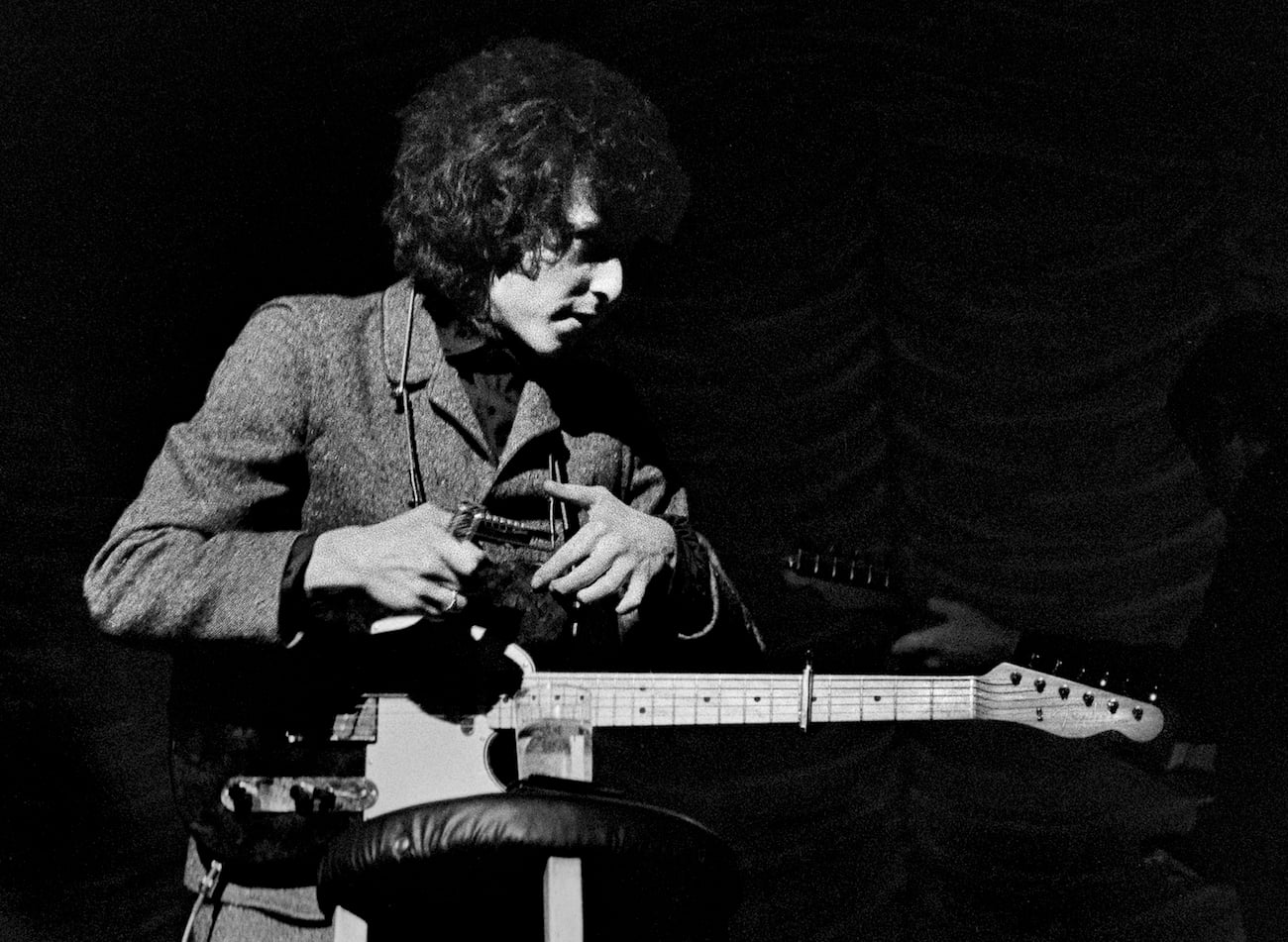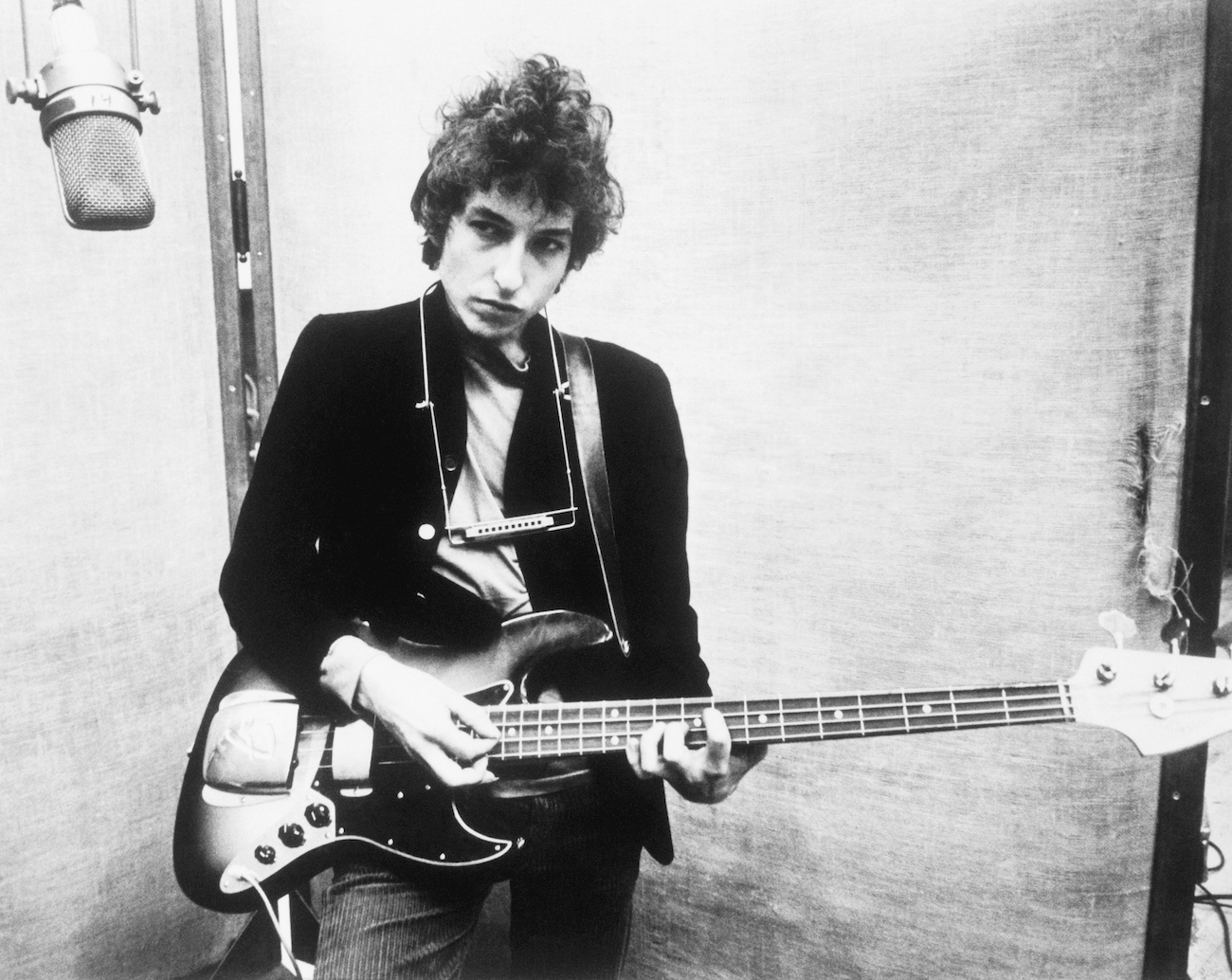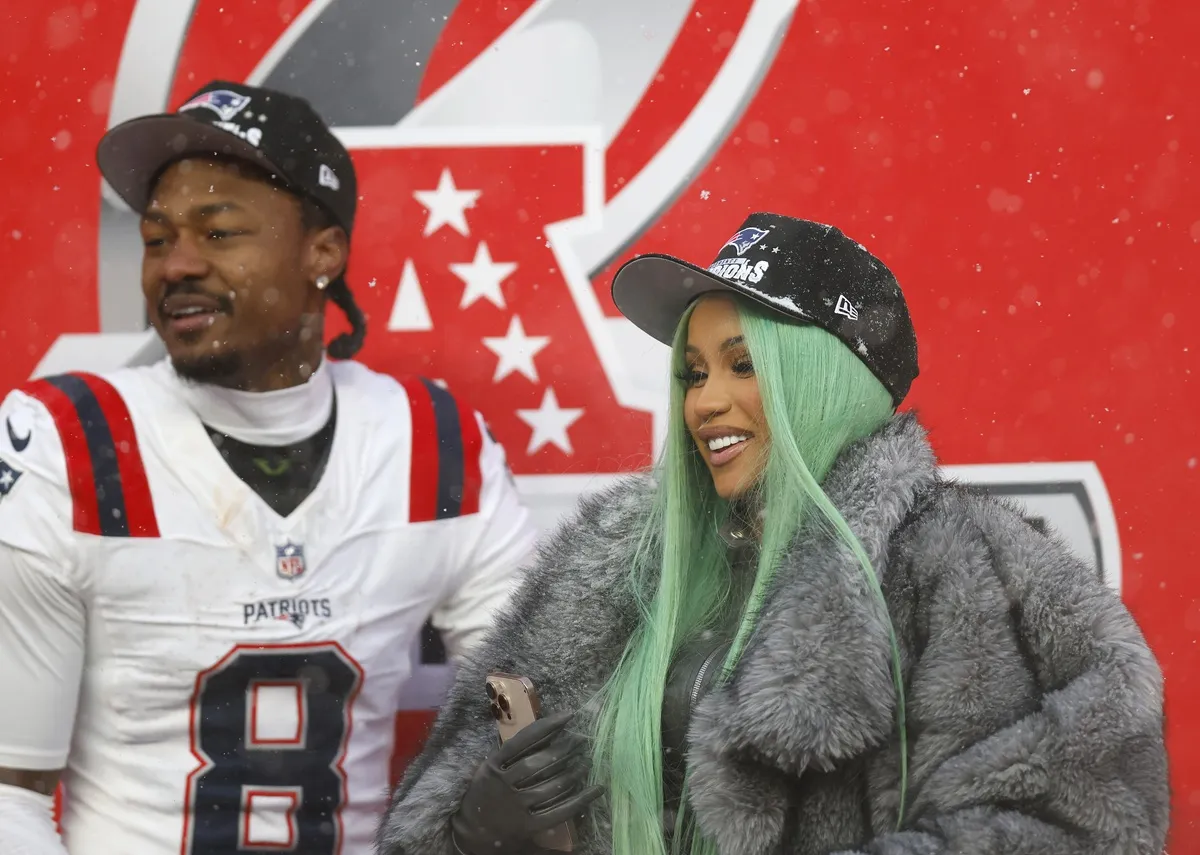
What Bob Dylan Had to Say About The Beatles’ ‘Sgt. Pepper’s Lonely Hearts Club Band’ After Paul McCartney Played Him the Album
Bob Dylan had something witty to say after listening to The Beatles‘ 1967 album, Sgt. Pepper’s Lonely Hearts Club. Dylan met the band in 1964. Shortly after, the two began to inspire each other.

The folk singer met the group in 1964 and turned them on to pot
The Beatles’ love for Dylan goes back to their early career. In Here Comes The Sun: The Spiritual And Musical Journey Of George Harrison, Joshua M. Greene wrote that while they were in Paris in 1964, The Beatles picked up two of Dylan’s albums at a radio station.
Greene wrote The Beatles were “so mesmerized by his wise lyrics and simple chords that they played the albums constantly in their Hôtel George V suite.”
Then, Dylan found the band and was similarly impressed. “Dylan drove cross-country from Denver to New York in 1963 with friend and photographer Barry Feinstein, playing the radio nonstop, and by midjourney it was clear to Dylan that the Beatles were ‘doing things nobody was doing. Their chords were outrageous and their harmonies made it all valid, but I kept it to myself that I really dug them,’ he told biographer Anthony Scaduto.
“‘Everybody else thought they were for the teenyboppers, that they were going to pass right away, but it was obvious to me that they had staying power.'”
While The Beatles were in the thick of Beatlemania in 1964, they finally met Dylan. Mutual friend Al Aronowitz introduced them at a New York hotel.
“I’d hate to think that putting Bob together with the Beatles is the only thing I’ll ever be remembered for,” Aronowitz later said, “but I think it certainly was the right thing to do. Hasn’t the whole world benefited? Look at all the beautiful music that we have as a result. The Beatles’ magic was in their sound. Bob’s magic was in his words. After they met, the Beatles’ words got grittier and Bob invented folk-rock.”
The songwriter gave them their first joint as well. However, Dylan gave them much so more. When one of the biggest groups in the world wanted to develop and hone their songwriting skills, Dylan was one of their biggest influences. Later, Dylan was inspired by The Beatles as well.
What Bob Dylan had to say about The Beatles’ ‘Sgt. Pepper’s Lonely Hearts Club Band’ after Paul McCartney played him the album
Following the completion of Sgt. Pepper’s Lonely Hearts Club Band, Paul visited Dylan in a London hotel and played some of the tracks for him. After listening to the songs, Dylan gave a typical response.
According to Greene, Dylan smiled and said, “Oh, I get it. You don’t want to be cute anymore.”
Dylan’s influence contributed to The Beatles’ change in sound. Once they stopped touring in 1966, they started listening to more of Dylan’s work and other influential artists of the time. They began to drop their mop-top, cute personas and explore the world, culture, religion, and all kinds of music. Soon, The Beatles lead the music world in one of the most experimental periods.
Dylan loved The Beatles’ albums
When The Beatles expanded musically after they stopped touring, they looked to Dylan for inspiration. In 1992, Guitar World pointed out to George Harrison that Dylan inspired them “lyrically to explore deeper subjects.” Meanwhile, The Beatles inspired Dylan “to expand musically, and to go electric.”
Asked if he ever talked to Dylan about how The Beatles and Dylan influenced each other, George replied, “Yes, and it was just like you were saying.
“I was at Bob’s house and we were trying to write a tune,” George said. “And I remember saying, ‘How did you write all those amazing words?’ And he shrugged and said, ‘Well, how about all those chords you use?’ So I started playing and said it was just all these funny chords people showed me when I was a kid.
“Then I played two major sevenths in a row to demonstrate, and I suddenly thought, Ah, this sounds like a tune here. Then we finished the song together. It was called ‘I’d Have You Anytime,’ and it was the first track on All Things Must Pass.“
Dylan and The Beatles might not have explored different sounds without each other. That’s a daunting thought.


